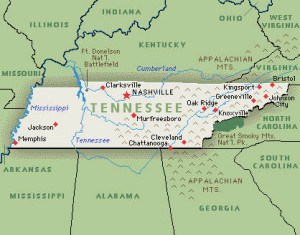 Vincent, one of our regular Stop the Cap! readers sent along a link to a story about the decrepit state of American broadband: it’s a real mess for those who can’t get it, can’t get enough of it, and compare it against what other people abroad are getting.
Vincent, one of our regular Stop the Cap! readers sent along a link to a story about the decrepit state of American broadband: it’s a real mess for those who can’t get it, can’t get enough of it, and compare it against what other people abroad are getting.
Cracked delivers the top five reasons why American broadband sucks. Be sure and read their take (adult language), but we have some thoughts of our own to share:
#5 Some of Us Just Plain Can’t Get It
Large sections of the prairie states, the mountain states, and the desert states can’t get broadband no matter how much they want it. That’s because they are a hundred miles or more from the nearest cable system and depend on the phone companies — especially AT&T, Frontier, CenturyLink, and Windstream to deliver basic DSL. AT&T is trying as hard as possible to win the right to abandon rural America altogether with the elimination of their basic service obligation. Verizon has sold off some of their most rural territories, including the entire states of Hawaii, New Hampshire, Maine, Vermont, and West Virginia. CenturyLink has absorbed Qwest in the least populated part of America — the mountain and desert west.
Frontier and Windstream are betting their business models on rural DSL, and while some are grateful to have anything resembling broadband, neither company earns spectacular customer ratings.
So long as rural broadband is not an instant profit winner for the phone companies selling it, rural America will remain dependent on dial-up or [shudder] satellite fraudband.
#4 Often There are No Real Options for Service (and No Competition)
Cracked has discovered the wonderfully inaccurate world of broadband mapping, where the map shows you have plentiful broadband all around, but phone calls to the providers on the list bring nothing but gales of laughter. As if you are getting service at your house. Ever. Stop the Cap! hears regularly from the broadband-deprived, some who have had to be more innovative than the local phone company ever was looking for ways to get service. Some have paid to bury their own phone cable to get DSL the phone company was reluctant to install, others have created super-powered Wi-Fi networks to share a neighbor’s connection. The rest live with broadband envy, watching for any glimpse of phone trucks running new wires up and down the road.
Competition is a concept foreign to most Americans confronted with one cable company and one phone company charging around the same price for service. The most aggressive competition comes when a community broadband provider throws a monkey wrench into the duopoly. Magically, rate hikes are few and fleeting and speeds are suddenly much better. Hmmm.
#3 Those Who Have Access Still Lag Behind the Rest of the World

We're #35!
This is an unnerving problem, especially when countries like Lithuania are now kicking the United States into the broadband corner. You wouldn’t believe we’re that bad off listening to providers, who talk about the innovative and robust broadband economy — the one that is independent of their lousy service. In fact, the biggest impediment to more innovation may be those same providers. Some have an insatiable appetite for money — money from you, money from content producers, money from taxpayers, more money from you, and by the way there better be a big fat check from Netflix in the mail this week for using our pipes!
Where is the real innovation? Community providers like Greenlight, Fibrant, and EPB that deliver their respective communities kick-butt broadband — service other providers would like to shut down at all costs. Not every commercial provider is an innovation vacuum. Verizon FiOS and Google’s new Gigabit fiber network in Kansas City represent innovation through investment. Unfortunately Wall Street doesn’t approve.
Still not convinced? Visit Japan or Korea and then tell us how American broadband resembles NetZero or AOL dial-up in comparison.
#2 Bad Internet = Shi**y Economy
The demagoguery of corporate-financed dollar-a-holler groups like “FreedomWorks” and “Americans for Prosperity” is without bounds. Whether it was attacking broadband stimulus funding, community broadband endeavors, or Net Neutrality, these provider shills turned broadband expansion into something as worthwhile as a welfare benefit for Cadillac drivers. Why are we spending precious tax dollars on Internet access so people can steal movies and download porn they asked. Why are we letting communities solve their own broadband problems building their own networks when it should be commercial providers being the final arbiter of who deserves access and who does not? Net Neutrality? Why that’s a socialist government takeover, it surely is.
It’s like watching railroad robber barons finance protest movements against public road construction. We can’t have free roads paved by the government unfairly competing with monopoly railway companies, can we? That’s anti-American!
The cost of inadequate broadband in an economy that has jettisoned manufacturing jobs to Mexico and the Far East is greater than we realize. Will America sacrifice its leadership in the Internet economy to China the same way we did with our textile, electronics, appliances, furniture, and housewares industries? China, Japan and Korea are building fiber optic broadband networks for their citizens and businesses. We’re still trying to figure out how to wire West Virginia for 3Mbps DSL.
#1 At This Point, Internet Access is Kind of a Necessity
The United Nations this week declared the Internet to be a basic human right. Conservatives scoffed at that, ridiculing the declaration for a variety of reasons ranging from disgust over any body that admits Hugo Chavez, to the lack of a similar declaration for gun ownership, and the usual interpretation of broadband as a high tech play-toy. Some folks probably thought the same way about the telephone and electricity around 1911.
Yes, the Internet can be frivolous, but then so can a phone call. Cursed by the U.S. Post Office for destroying their first class mail business, by telephone directory publishers, and those bill payment envelope manufacturers, the Internet does have its detractors. But should we go back to picking out commemorative stamps at the post office? Your local phone and cable company sure doesn’t think so. We don’t either.


 Subscribe
Subscribe














